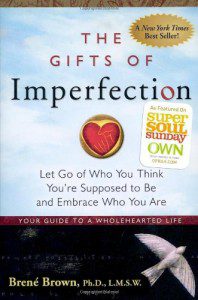(R. Kirby Godsey, Is God a Christian? Creating a Community of Conversation, Mercer University Press, 2011, 196 pages.)
When I receive books in the mail to review for the Patheos Book Club, they are usually new books with which I am previously unfamiliar. So I was pleasantly surprised to be sent Kirby Godsey’s book with the provocative title, Is God a Christian?
My initial response was to think of another book I recently finished that provides at least one response to the author’s inquiry. Archbishop Desmond Tutu’s latest book is titled God Is Not a Christian: And Other Provocations.
Full disclosure, my tendency — from long before reading either Tutu’s or Godsey’s book — is to agree with Tutu’s conclusion. As I have wrestled with the reality of religious pluralism in the twenty-first century, I have found two short sayings helpful. First, theologian Huston Smith has said that God is “defined by Jesus, not confined to Jesus.” Second, Episcopal Bishop John Shelby Spong has said, “I walk the Christ-path into the mystery of God, but I do not believe that God is a Christian.” The common core to both of these sayings is that one can affirm the validity of other religious traditions without abandoning Christianity. John Hick and Paul Knitter call this perspective the result of unmasking The Myth of Christian Uniqueness or The Myth of Religious Superiority. An alternative position, of which I am an advocate, is to follow the prophet Micah’s advice to “walk humbly with your God” (6:8).
So the stage was set for me to be receptive to Godsey’s book based on the title alone. When I turned to the back cover, I was further heartened to see a panoply of names that are familiar to those who follow contemporary moderate Baptist life in the United States: Walter Shurden, Chuck Poole, Tony Campolo, and Bill Leonard. The presence of these endorsers began to make sense as I saw that this book is published by Mercer University Press (a moderate Baptist University) and that Kirby Godsey was president of Mercery University for twenty-seven years and is now the chancellor.
With those initial commendations in the book’s favor, I was taken aback by two aspects of the summary on the front and back flaps. First, there are two uses of the term “mankind.” Such sexist language could have been easily changed to “humankind” and is shockingly antiquated: most colleges and universities have had style guides for years (decades in many cases) that mandate the use of inclusive language even for college freshmen. So the presence of exclusive language to promote a university president’s book is perplexing and disappointing. Second, there is a reference to the “Quakers of old,” as if The Religious Society of Friends, where not still around with active adherents.
Authors often do not have control of the marketing or even the title of their book, so I do not know whether Mercer University Press or Godsey made these choices. But they are odd choices for a book with the stated intention of “creating a community of conversation.” Why alienate potential readers from the outset, before they have perhaps even cracked the cover of the book the publisher is hoping they will both purchase and read?
Setting these qualifications aside, there is much to commend Godsey’s book once you remove the troublesome dustjacket and start reading the text itself. In Part One on “Breaking Down Barriers,” Godsey wisely begins with some of his own story: how he initially began to conceive of God in his childhood, as well as how his conception of God has changed and expanded in his adulthood.
In Part Two on “Touching the Faces of God,” Godsey admirably wrestles with the relationship of the three so-called “Abrahamic” religions (Judaism, Christianity, and Islam). But he also expands his vision to consider Hinduism, Buddhism, Confucianism, and Taoism.
In Part Three, “Building Bridges,” he tries to draw some conclusions in light of the two previous sections. Perhaps most importantly, he lists seven threads, each of which could be a important starting point for creating an authentic community of respectful, life-giving conversation.
Whereas Demond Tutu’s title is a prophetic proclamation that “God Is Not a Christian,” Godsey’s title appropriately invites his readers into the conversation of “Is God a Christian?” If so, why? If not, why not? Godsey’s book is a guide to living peacefully together toward the answer, while walking humbly with your God.
(Please visit the Patheos Book Club for other reviews of this book, a video, an excerpt, a free study guide, and other resources.)












